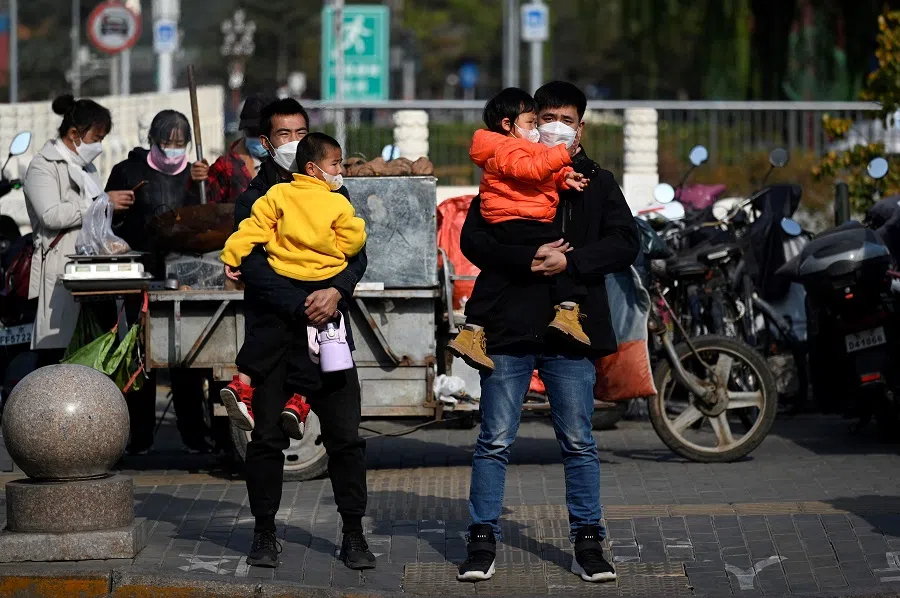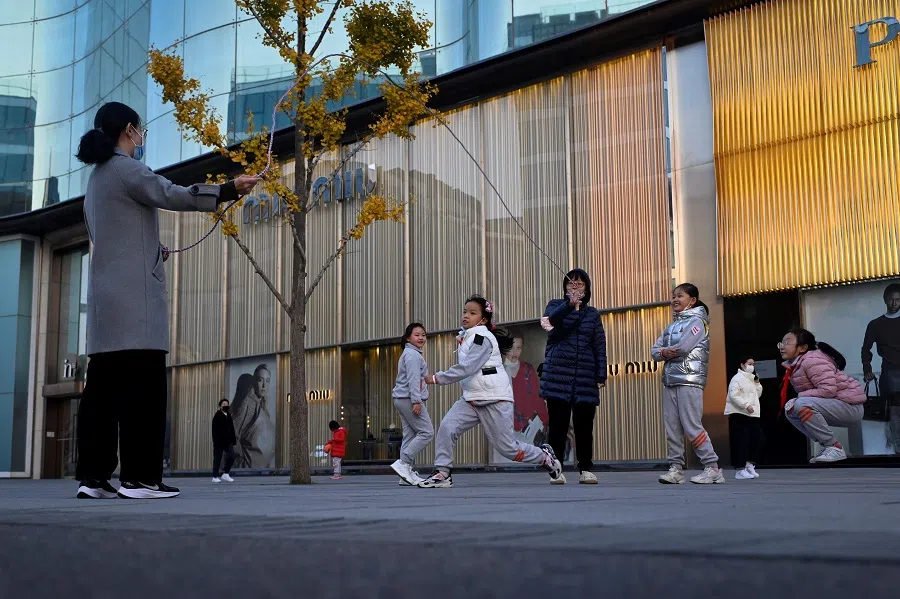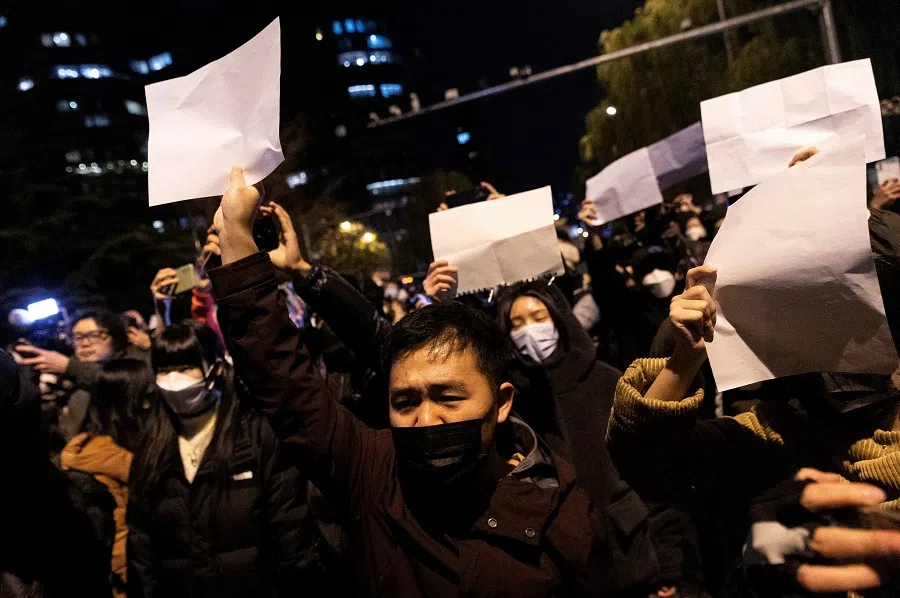China's marriage, divorce and birth rates are falling
The prolonged implementation of Covid-19 control measures has caused a significant socioeconomic impact in China, notably leading to the decline in marriage, divorce and birth rates, as well as the increase in youth unemployment. While the situation is more complex than what the data show, Chinese observers believe that both external and internal factors are at play.

The prolonged Covid-19 control measures in China have resulted in fewer marriages. Based on the latest figures from the Ministry of Civil Affairs, 1.63 million Chinese couples got married in the second quarter of 2022, down by 20% compared with the 2.03 million marriages registered in the same period last year.
At the same time, the total number of marriages registered in the first half of 2022 fell by 10% to 3.7 million, the lowest half-year total since the ministry started publishing quarterly data in 2007.
Notably, the ministry did not explain why it had delayed the release of the figures for the first half of this year, which are usually released in July or August of each year.
Sluggish economy affecting marriage numbers
In an analysis for Jiemian News (《界面新闻》), China demographics expert Yi Fuxian noted that the onset of the pandemic in 2020 led to a drastic reduction in marriage numbers in the first quarter, but rebounded slightly in the second quarter. This year, large-scale outbreak of the Omicron variant led to stringent pandemic control measures in parts of China, causing marriage numbers in the second quarter to fall by 20% year-on-year, or 23% quarter-on-quarter.
According to the Ministry of Civil Affairs 2021 annual report, marriage numbers in China fell for the eighth consecutive year, with those above 30 years of age making up nearly half of all who got married in 2021. In addition, 7.64 million marriages were registered in 2021, down by 6.1% compared with 2020. This is also the lowest figure since records began in 1986.

The consensus is that the pandemic's impact on the economy over the past three years is the main cause of the sharp decline in marriage numbers. Furthermore, in the first three quarters of 2022, the Chinese economy only grew by 3% year-on-year, far behind the official target of 5.5% for the year.
Based on Nomura Group estimates, up until late November, Chinese cities that jointly contribute around 20% of the country's GDP were placed under some form of Covid-19 control measures, with around 412 million people affected. Most economists had lowered their forecasts for China's economic growth in 2022. In late November, Nomura's chief China economist, Lu Ting, forecast that the country's economy will contract by 0.3% quarter-on-quarter in the fourth quarter, and lowered his forecast for China's economic growth in 2022 from 2.9% to 2.8%.
Faced with the uncertainty from the country's sluggish economy, many Chinese youths have postponed their major life plans, for instance getting married.
However, with the latest easing of Covid measures, economists at JPMorgan Chase & Co. said economic growth of around 5% is "achievable" for China next year depending on how the nation's new leadership team oversees a reopening after years of pandemic lockdowns.
Pandemic rules dampening relationships
Faced with the uncertainty from the country's sluggish economy, many Chinese youths have postponed their major life plans, for instance getting married.
In a Wall Street Journal article, Judy Wang, a Hebei native in her 20s, said that finding employment is her priority, rather than getting married. After losing her job as a business events planner, Judy lost at least three job opportunities due to the pandemic control measures. She was either unable to attend the interview or the company was no longer hiring.

Based on official surveys of urban residents, the unemployment rate for 16 to 24-year-olds reached 17.9% in October, unchanged from September. In July, the figure hit 19.9%, meaning that one in five Chinese youths was unemployed. This was the highest rate since the government started publishing such figures.
...with fewer opportunities and time for relationships to develop and mature during the pandemic, it is difficult for couples to plan their weddings and hold wedding banquets.
In an interview with China Women's News (《中国妇女报》), Ye Wenzhen, adjunct professor at Xiamen University and vice-president of the Chinese Women Research Society, said that the decline in marriage numbers in 2021 was clearly due to the pandemic. He underlined that with the economic slump, both income and employment have been affected. At the same time, the Chinese traditional mindset of owning a house and a car before tying the knot has also put young Chinese under pressure, while the cost of raising children made them even more cautious about getting married. To a certain extent, the dilemma of not being able to afford to get married is still unresolved.
In addition, Ye also believes that with fewer opportunities and time for relationships to develop and mature during the pandemic, it is difficult for couples to plan their weddings and hold wedding banquets. The knock-on effect is that they take longer to reach a stage where they are ready to get married.
More difficult to divorce during pandemic
Aside from the macro factors that cause young Chinese to think twice about getting married, the government previously introduced some safeguards to the divorce process in an attempt to preserve marriages.
In May 2020, the National People's Congress approved the first ever Civil Code of the People's Republic of China. After the Civil Code came into force in January 2021, a 30-day cooling down period is required before married couples can divorce by agreement.

The measure was deemed to be effective since there were only 2.1 million divorces in 2021 as compared with 3.7 million in 2020. However, the above mentioned numbers only account for married couples who divorced by agreement, which are processed by the civil affairs bureaus. For divorces by litigation, lengthy legal proceedings in the courts may ensue.
...the lower divorce rates could be due to married couples being unable to meet the requirements of the divorce process rather than not wanting to divorce.
Furthermore, in a New York Times article, Ethan Michelson, professor at Indiana University and an expert on Chinese marriage laws and gender inequality issues, assessed that the decrease in divorce rates may be a consequence of the increased difficulty in making appointments for the divorce process due to the pandemic.
A married couple has to apply in person for a divorce by agreement jointly. Following a 30-day cooling period, both parties need to be present again for the process, or their application will be cancelled. Lockdowns and social distancing measures have made it more difficult to divorce by agreement, so the lower divorce rates could be due to married couples being unable to meet the requirements of the divorce process rather than not wanting to divorce.
Besides the impact on marriage and divorce rates, birth rates have also fallen due to the pandemic. When the pandemic hit in 2020, China's birth rate (the number of live births per 1,000 in the population) fell below 10% for the first time to 8.52%, the lowest since 1978. In 2021, it fell further to 7.52%.

In August, responding to Reuters on the matter, the National Health Commission said that many Chinese women are delaying their plans to marry and have children, and that the rapid socioeconomic developments have brought "profound changes" for them. The commission also said that the pandemic has clearly impacted marriage and birth plans for some.
Society in flux
As the socioeconomic costs of the pandemic control measures continue to rise, the Chinese public has grown weary of the prolonged battle against the coronavirus. As emotions run high, isolated incidents can trigger social unrest.
At the end of November, protests against the strict pandemic measures broke out in major Chinese cities such as Shanghai, Beijing, Chengdu, Xi'an and Wuhan. The unrest was sparked by a residential fire in Urumqi on 24 November that resulted in ten deaths. Online fora were rife with speculation that lockdown measures impeded rescue efforts.
On 27 November, the Global Times carried an article accusing Western media outlets of fanning discontent among the Chinese public against the government's Covid-19 policies.

In the article entitled "Western Media Badmouth China's Epidemic Like How Washington Fans the Flames in Russia-Ukraine Conflict", Shen Yi, professor at Fudan University in Shanghai, remarked that due to ideological differences, it has become almost an instinct of Western countries and media to criticise communist governments with an aim to subvert the latter with colour revolutions.
Shen added that in the major power game, the "objective facts on differences between China and the West" have driven the West into a state of anxiety when it comes to handling the virus. They are thus eager to capture, exaggerate and point fingers at all negative issues they could find in China's epidemic control procedures.
The Global Times article also stated: "China's Covid-19 response measures are never static, but are under constant adjustments for the better due to the changing situation."
Going back to greater stability and good times?
Hu Xijin, the former editor-in-chief of the Global Times, was of the same opinion. In his 28 November Weibo post, Hu talked about the incidents that occurred in various parts of China over the past two days and opined that the influence of external factors could not be ruled out.
Hu stated, "We need to understand that these external factors are always present, they are constants. Even when our relationship with the West was amicable, these factors remained." He added that internal factors were variables that determined the progress and spread of events. In other words, external factors utilise internal factors to achieve their aims.
"We need to block and eliminate the external factors, and adjust and improve the internal factors so that the episode can be suitably resolved, thereby creating favourable conditions for long-term social stability." - Hu Xijin, former editor-in-chief of the Global Times

Describing the episode as a complex one, Hu believes that both government and society might as well face up to its complexity and employ various means to deal with it. Hu said, "We need to block and eliminate the external factors, and adjust and improve the internal factors so that the episode can be suitably resolved, thereby creating favourable conditions for long-term social stability."
Prolonged implementation of a strict "dynamic zero-Covid" policy in China has led to a significant socioeconomic impact, resulting in low economic growth, marriage numbers and birth rates. The Chinese public believe that following the optimisation of pandemic policies, the further lifting of restrictions would not be too far off. But sometimes greater expectations raise anxieties. It is now up to the Chinese government to exercise its political wisdom to manoeuvre the country out of this dilemma.
This article was first published in Lianhe Zaobao as "中国人疫下的"结"".
Related: Covid protests: A repressed China needs an outlet to return to equilibrium | The taste of freedom: How I feel emerging from lockdown in Beijing | Why Chinese women are unwilling to give birth | China wants to reverse its high abortion rate with pro-birth policies, and young women are not happy | Chinese couples queuing up for divorce: Blame it on the coronavirus?

![[Big read] Paying for pleasure: Chinese women indulge in handsome male hosts](https://cassette.sphdigital.com.sg/image/thinkchina/c2cf352c4d2ed7e9531e3525a2bd965a52dc4e85ccc026bc16515baab02389ab)



